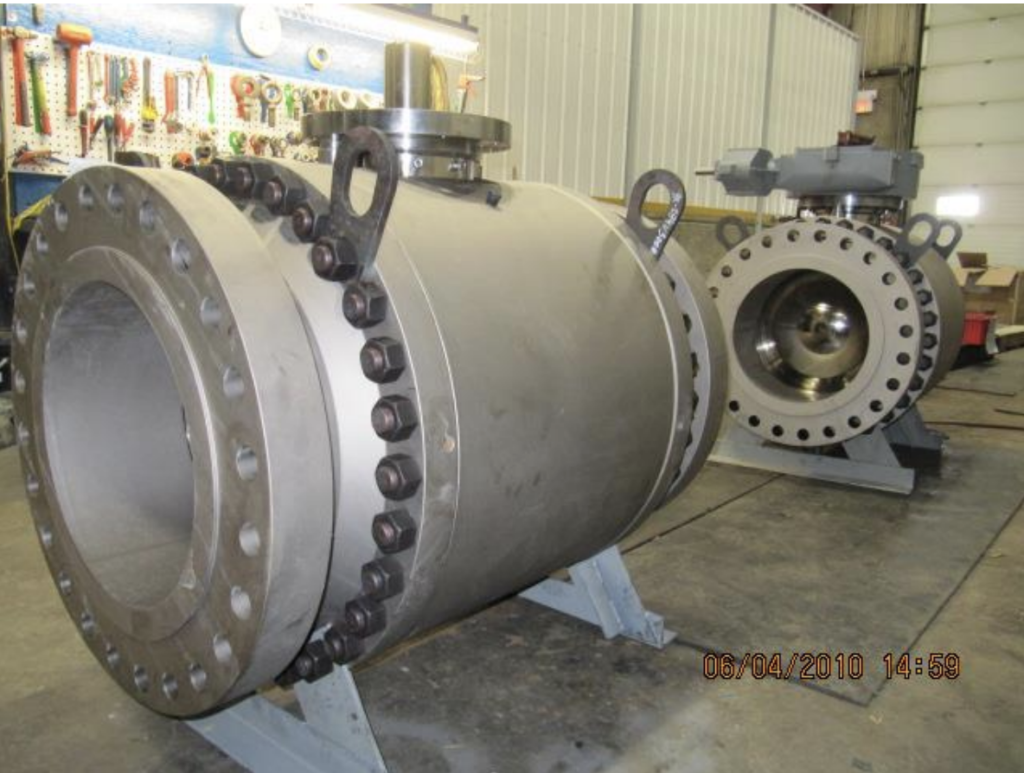IPC Series 3000 is a true barrier-protective electroless nickel coating proven extremely effective in the oil and gas industries.
Part of what makes IPC Series 3000 a superior electroless nickel coating is that it is not a sacrificial coating like zinc plating. Instead, it provides an excellent barrier between corrosive environments and the substrate where typically only exotic alloys have been used in the past. As the #1 qualified applicator for some of the most reputable coating manufacturers, our electroless nickel coatings (including IPC Series 3000) have been proven effective for companies around the world.
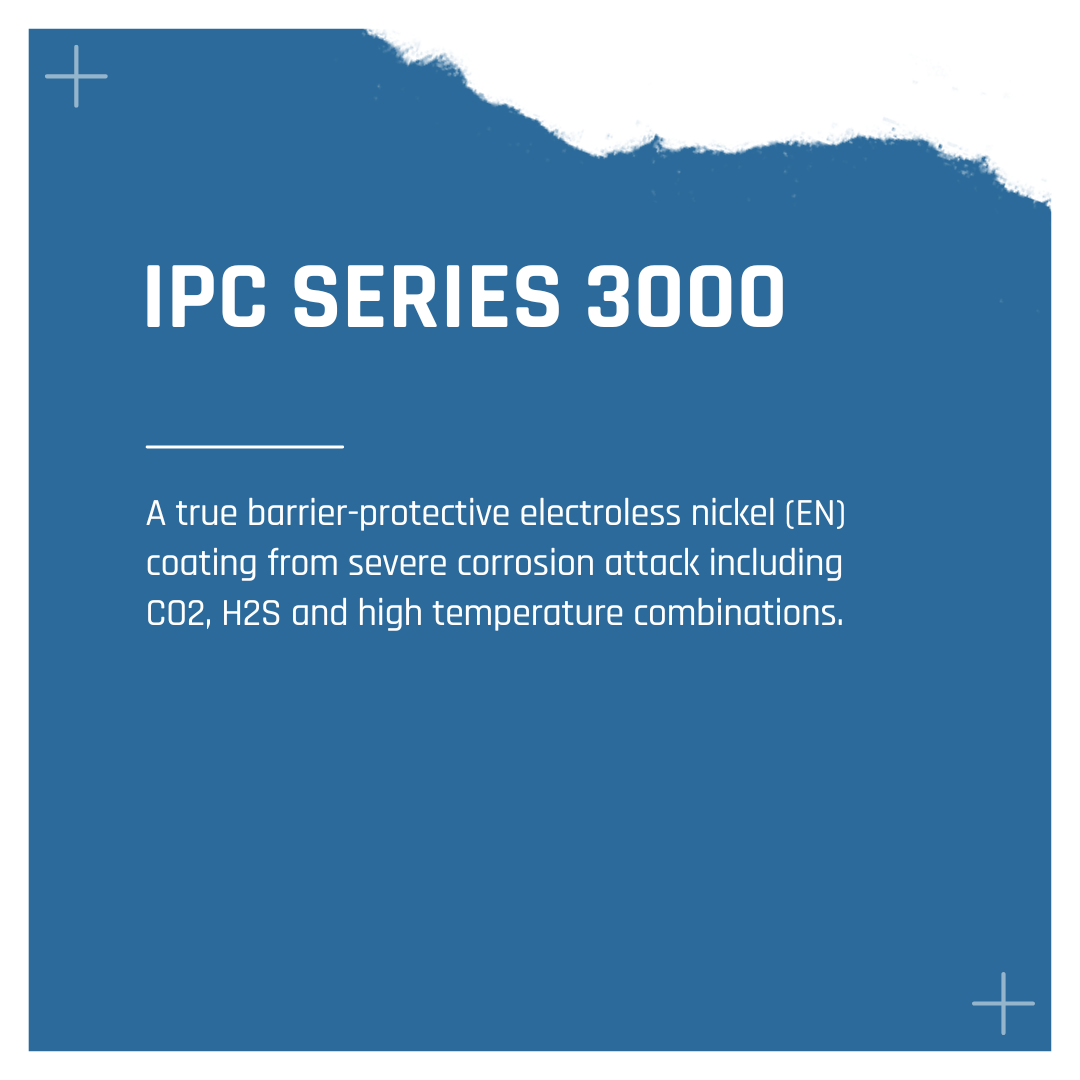
Putting IPC Series 3000 To The Test
The oil and gas industries have been a proving ground for high-phosphorous electroless nickel for many decades. The properties that have been the most beneficial historically have been those with excellent corrosion resistance, abrasion/erosion resistance, and that have thickness uniformity of the deposits — exactly what we see with the highly phosphorus IPC Series 3000.
Also Read: The Best Protective Coatings For Wellheads in Canada
How Does Our Electroless Nickel Coating Work?
The exceptional corrosion resistance of this EN coating is due to its amorphous nature. Unlike equivalent polycrystalline materials, amorphous alloys do not have grain or phase boundaries, which are initiation sites for corrosion to begin. These alloys also form glassy surface films that passivate them against attack. This has made it the perfect coating for a variety of materials such as valves (ball, gate, globe, and check) and many different flow control devices. These are obviously critical components in the operation of a well where excellent performance and long life are major economic factors.
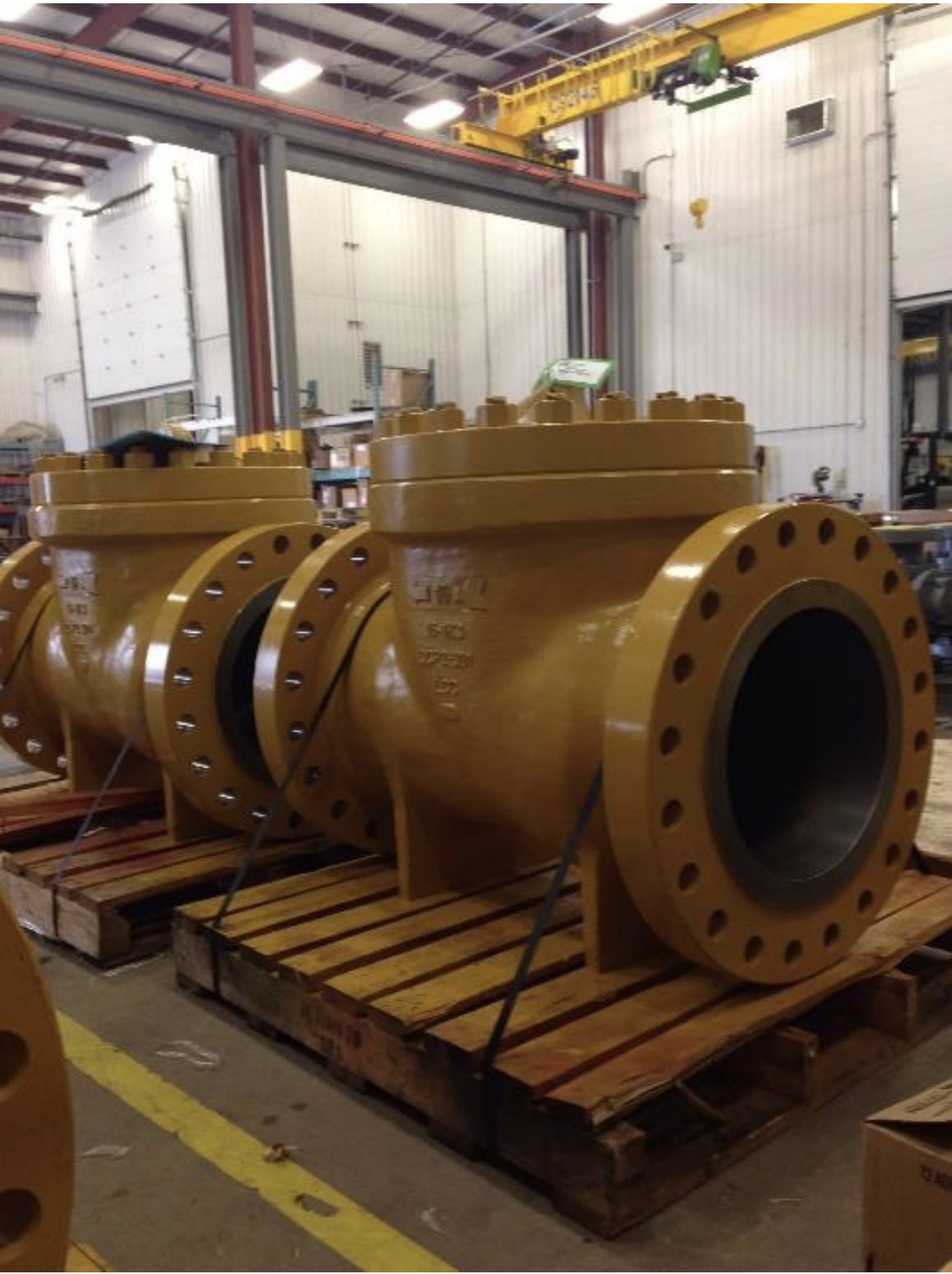
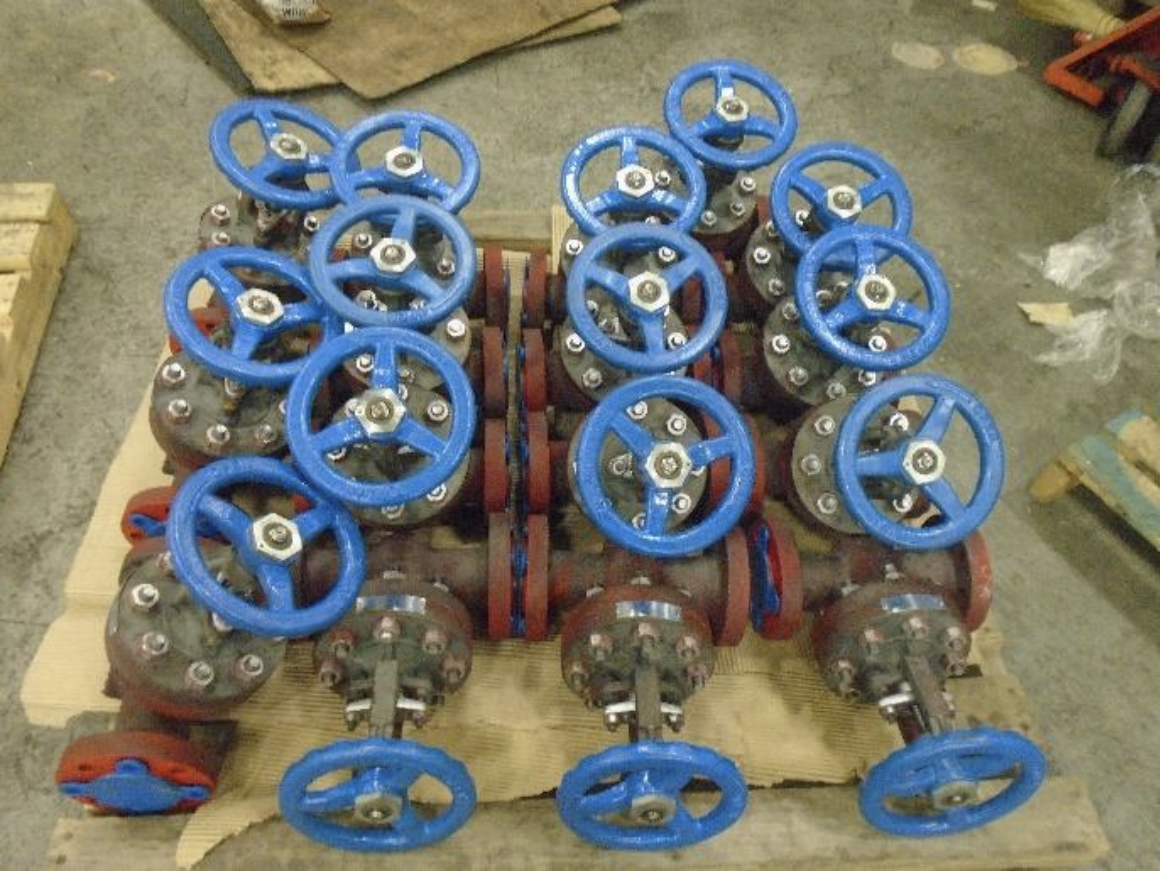
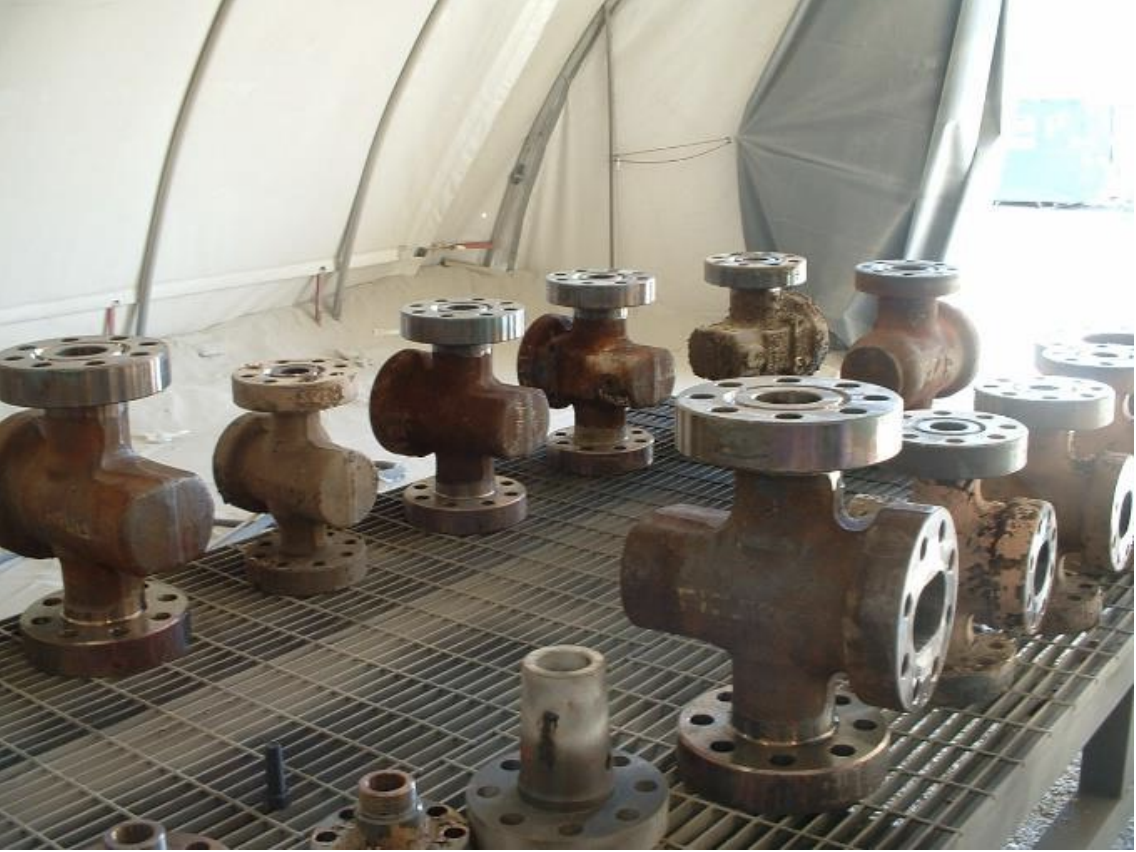
Valves Received | Before Electroless Nickel Coating Process
Oil and Gas equipment is often exposed to severe environmental conditions which can include chlorides, hydrogen sulfide, carbon dioxide, brines, and oxygen. The exposure is often combined with abrasion problems associated with the ingestion of sand and mud and in some cases, temperatures as high as 200°C. In H2S saturated and mixed CO2/H2S saturated brines, our EN deposit does not corrode.
When hydrogen sulfide is present, a tenacious sulphide film forms which increases the passivity of the coating and prevents further attack. Other tests have shown that sulfide films will form with H2S concentrations as low as 4 ppm and at temperatures as high as 180 deg. C. Since most production environments contain at least a trace of H2S, our IPC Series 3000 provides almost complete protection against oil field corrosion.
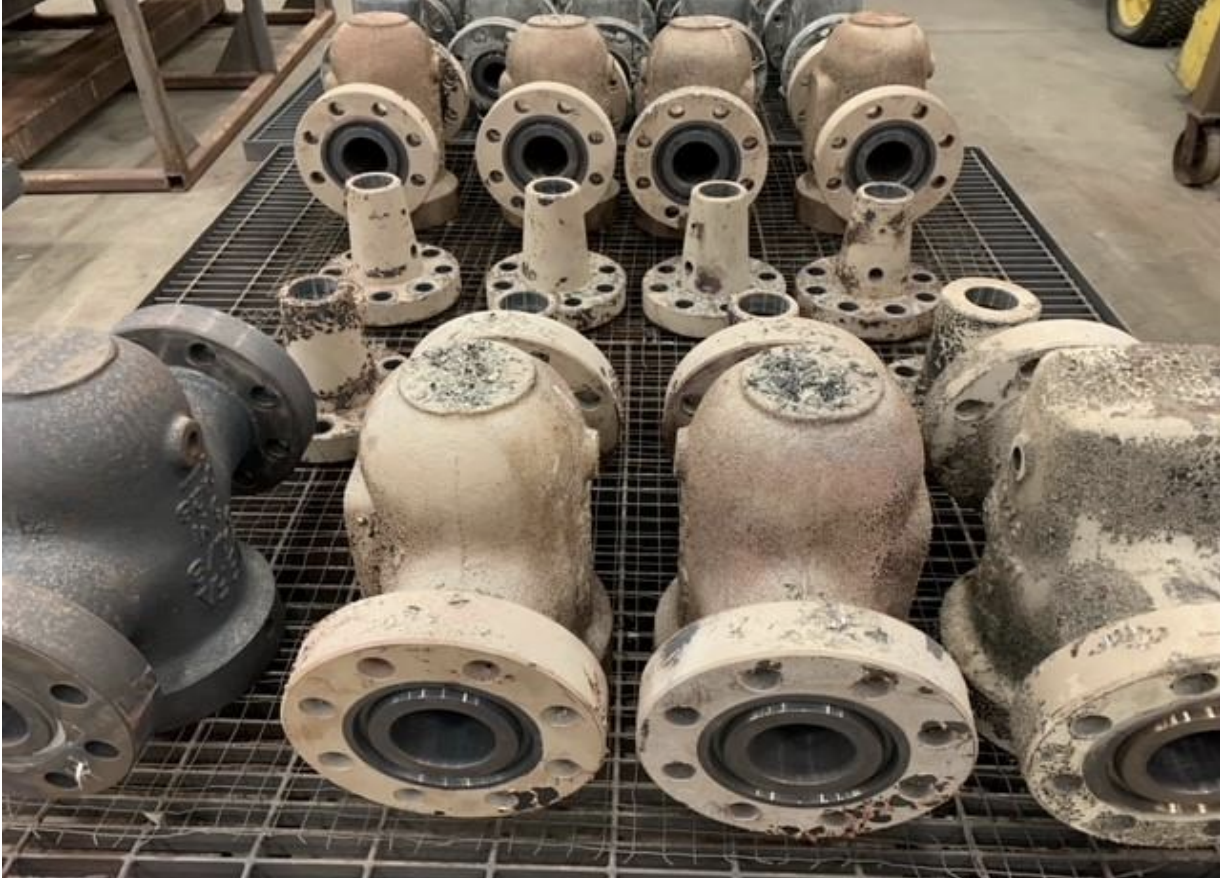
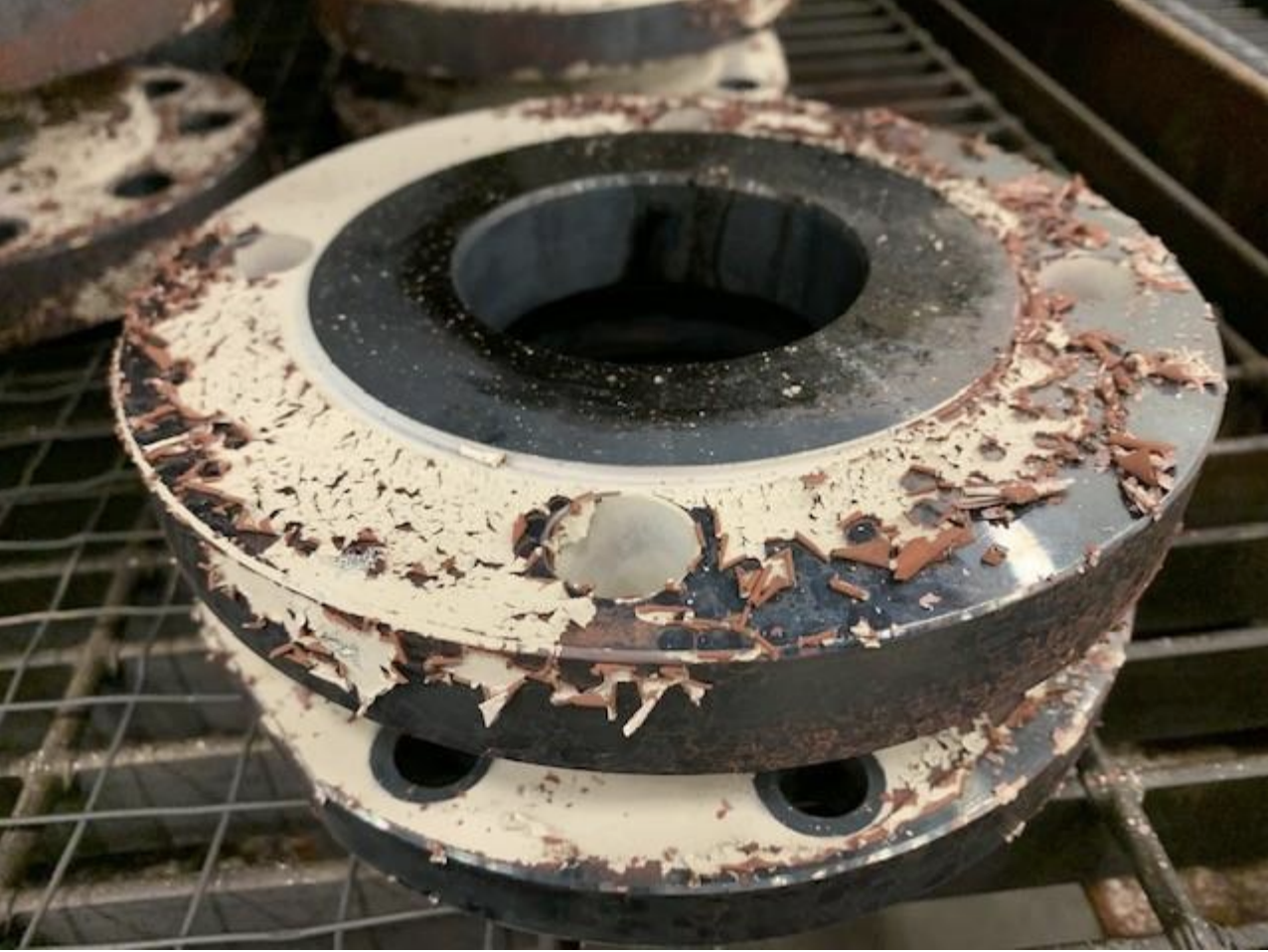
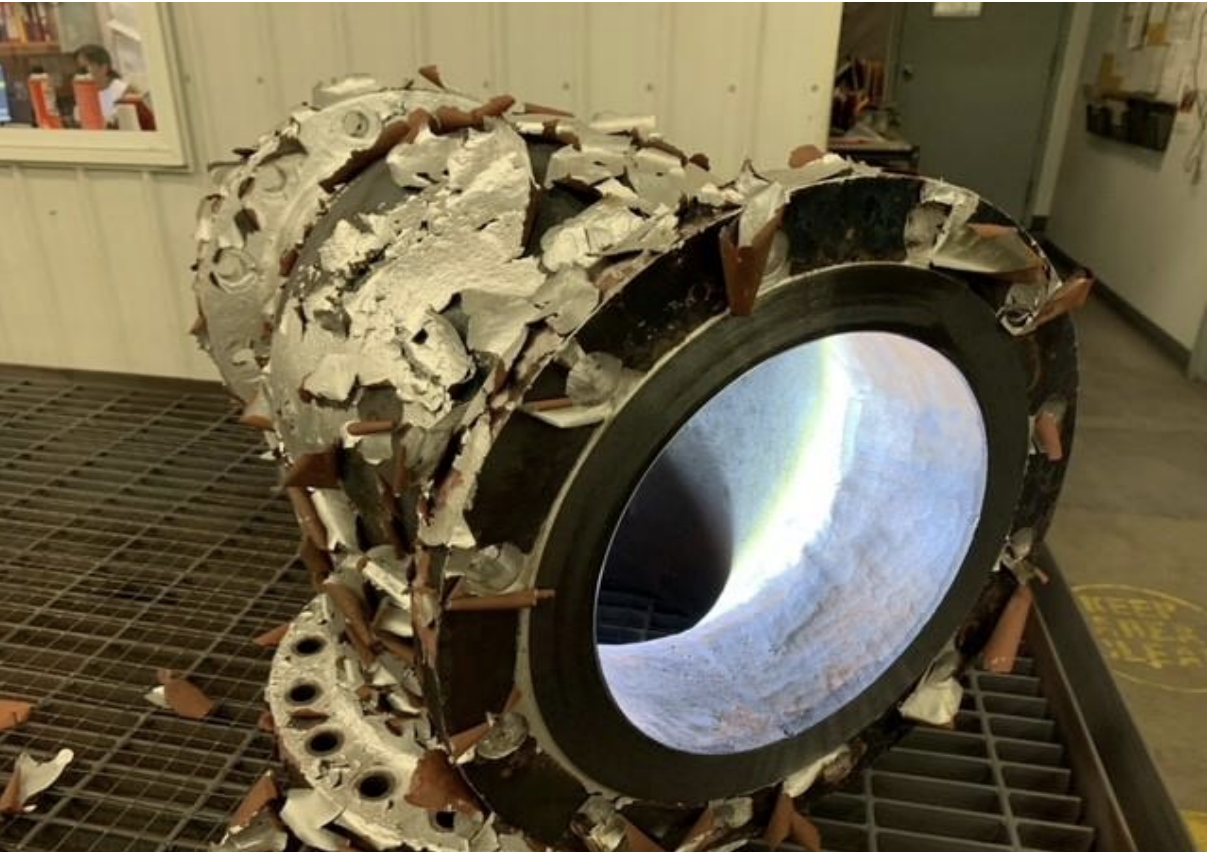
Valves in Surface Preparation Phase | Undergoing Thermal Cleaning
Which Corrosive Environments Has IPC 3000 Been Proven Successful?
Successful applications have been observed in many corrosive environments.
For instance, in crude oil production, with the associated gas under very severe conditions (55% hydrogen sulfide, temperature = 80°C, pressure =3000 psi) the mild steel ball valves had a maximum life of three months, with failure occurring as a result of corrosion, surface cracking and erosion. Electroless plating of the valve components with 50 microns of EN deposit extended the life of the assemblies enormously and no surface deterioration was evident after three years of continuous service.
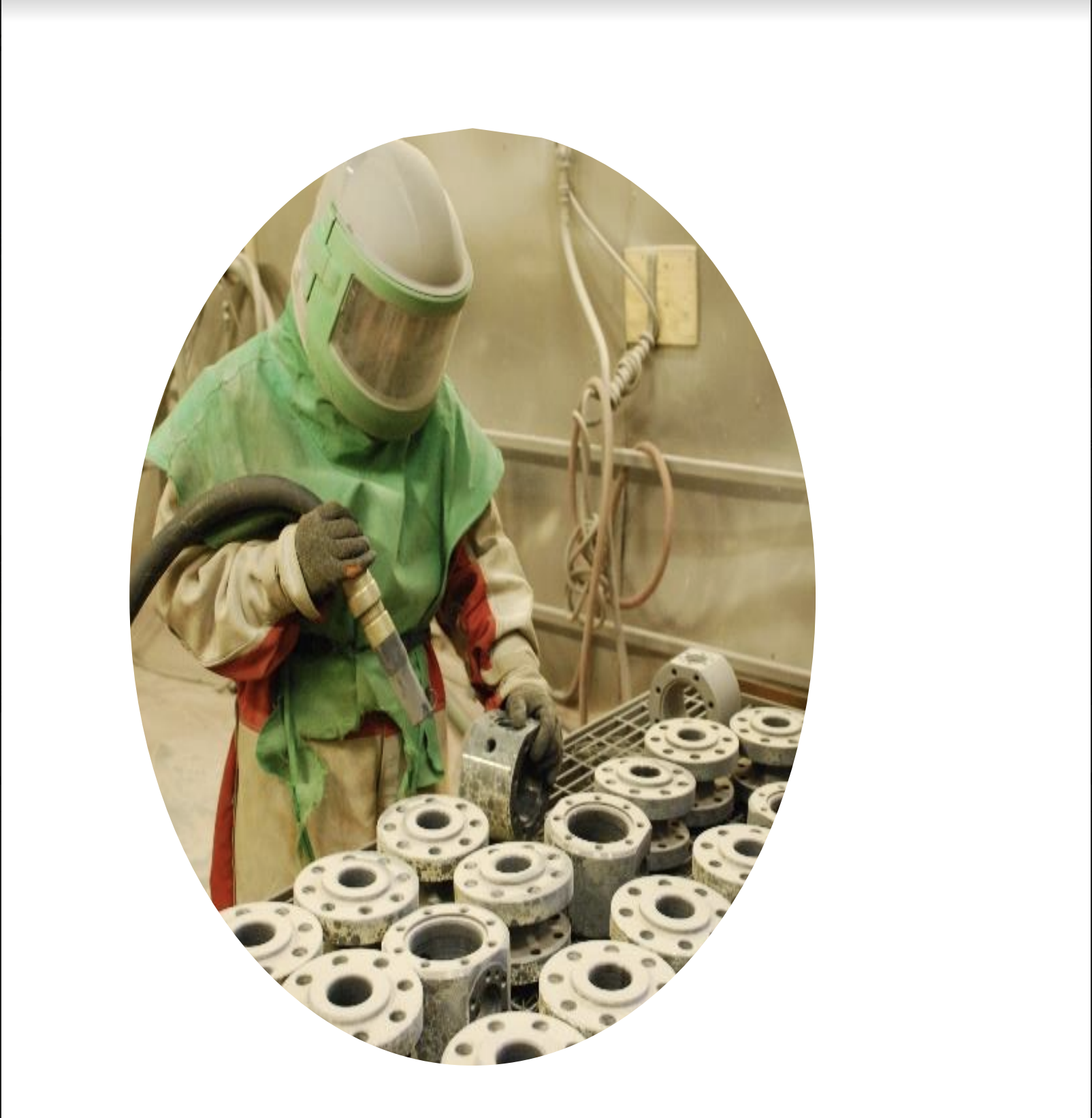
Surface preparation, Sandblast (AMPP #1, SSPC-SP 5, White Metal Finish)
Similar benefits have been realized on ball valves at plants using the seawater injection system. This involves pumping sea water under high pressure to force the oil to the surface. The EN deposit of 50-75 microns on the valves satisfactorily withstood the operating conditions to such an extent that no degradation of the coating was detectable after four years of operation.
IPC Series 3000 Has Been Successfully Used To Coat Valves in Acid Gas Wells
The performance of valves, chokes and other components plated with electroless nickel has been equally impressive in Acid Gas wells. Acid gas is a lean natural gas produced from a dolomite and limestone formation that typically contains about 6 mole % CO2 and 0.1 mole % H2S. It also contains approximately 28 l/m3 of condensate, predominantly hexane, and 7 l/m3 of water. At the wellhead, the gas pressure is typically around 5000 psi and the temperature 90°C. Gas velocities are normally greater than 6 m/sec and under these conditions, the damage to steel components by corrosion/erosion was proven very severe.
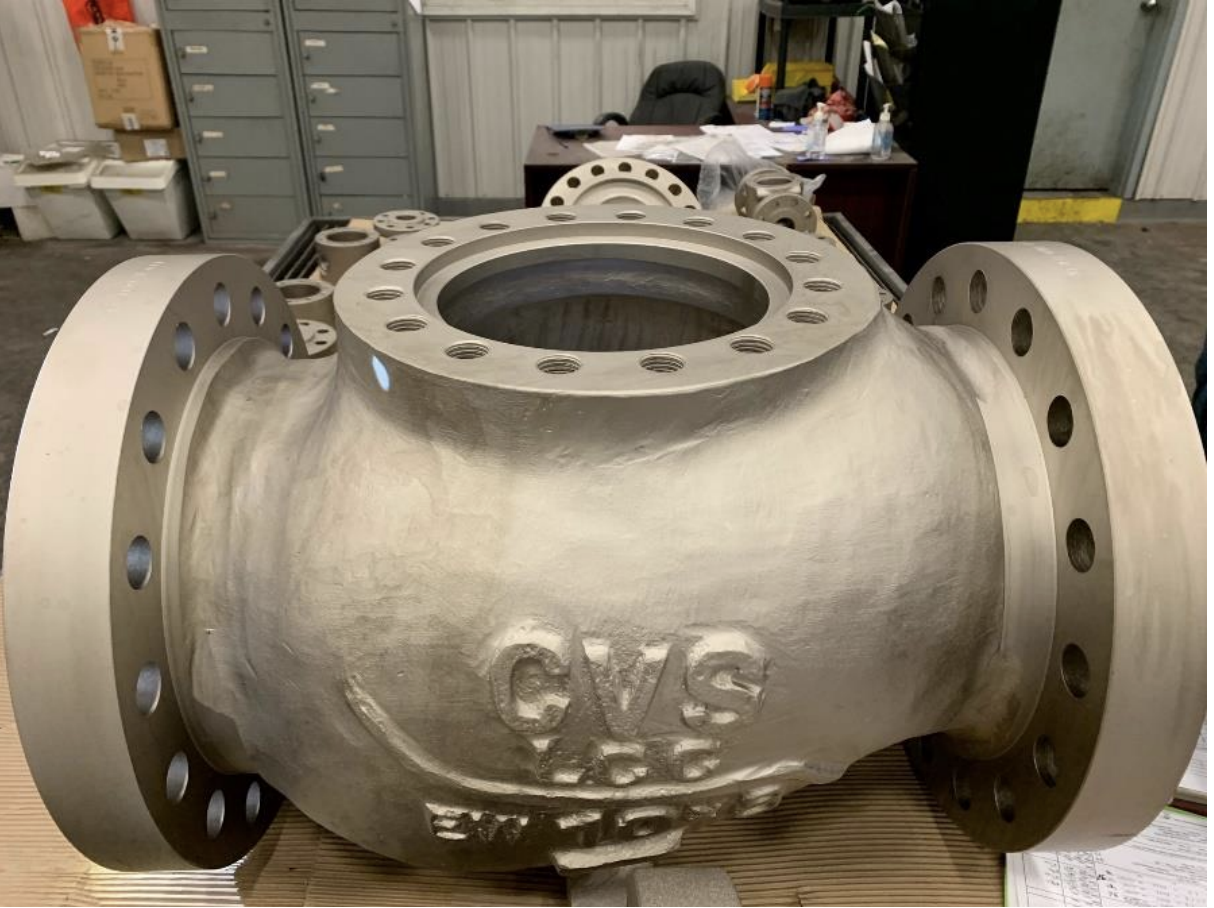
Valve EN-plated With IPC Series 3000
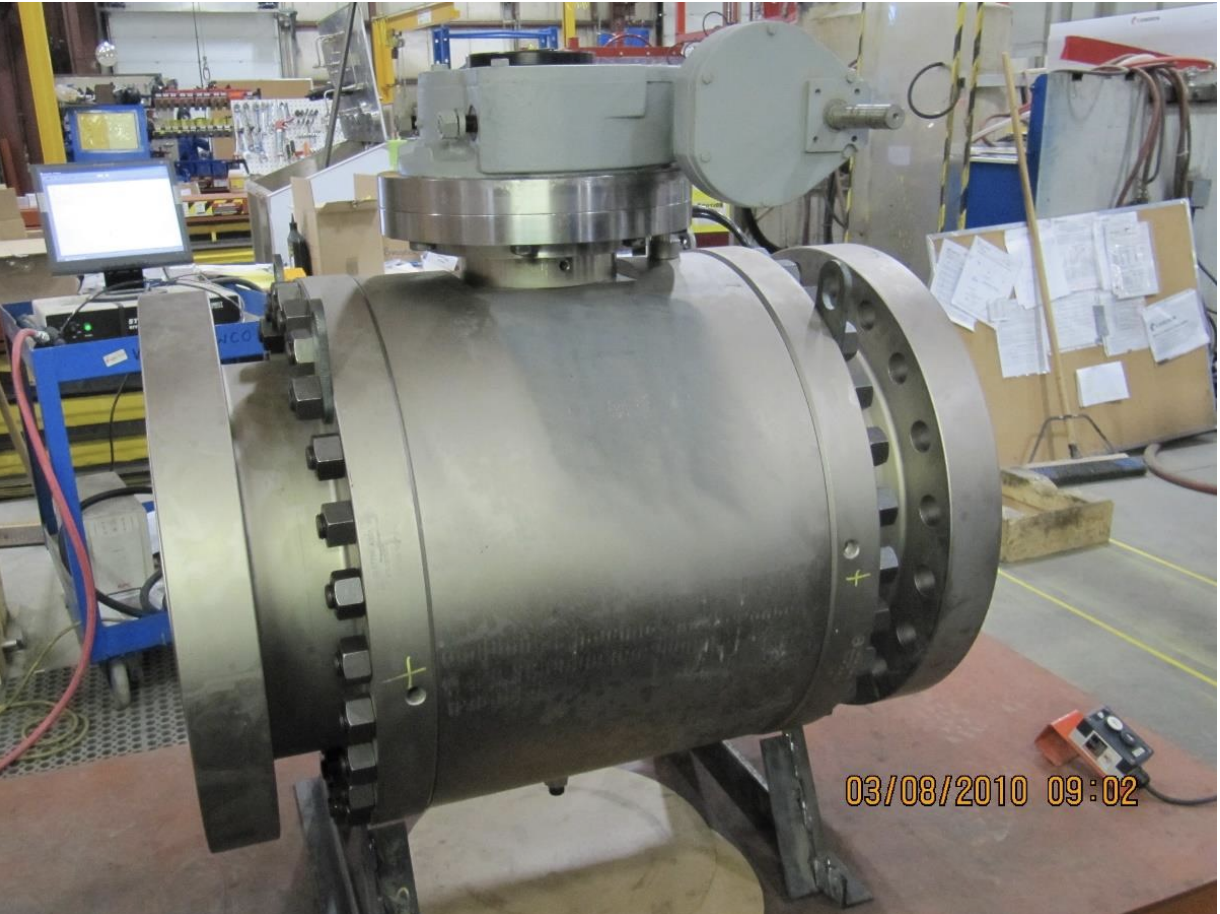
Assembled Valve EN-Plated With IPC Series 3000
Pitting and erosion resulted in metal loss rates of 3 to 5 mm/year on carbon steel chokes and this was successfully eliminated by the application of 25-40 microns of electroless nickel on all wetted surfaces. Problems with ball valves in this environment have also been overcome by the use of electroless nickel. Additionally, 50 -75 microns applied to valve plugs have prevented corrosion for at least six years.
The valve bodies and other internal accessories made of low-carbon steel can be fully coated with IPC Series 3000. The areas such as internal gasket serration surfaces and the raised face areas on the flanges are all coated without any masking. This is accomplished on small and large parts, and on the components with complex shapes or recessed areas. Grooves, slots and blind holes have the same amount of coating as the outside of a part. The application of 30-50 microns (1.2 – 2 mils) of electroless nickel to mild steel ball valves has now been an industry standard for the last three decades.
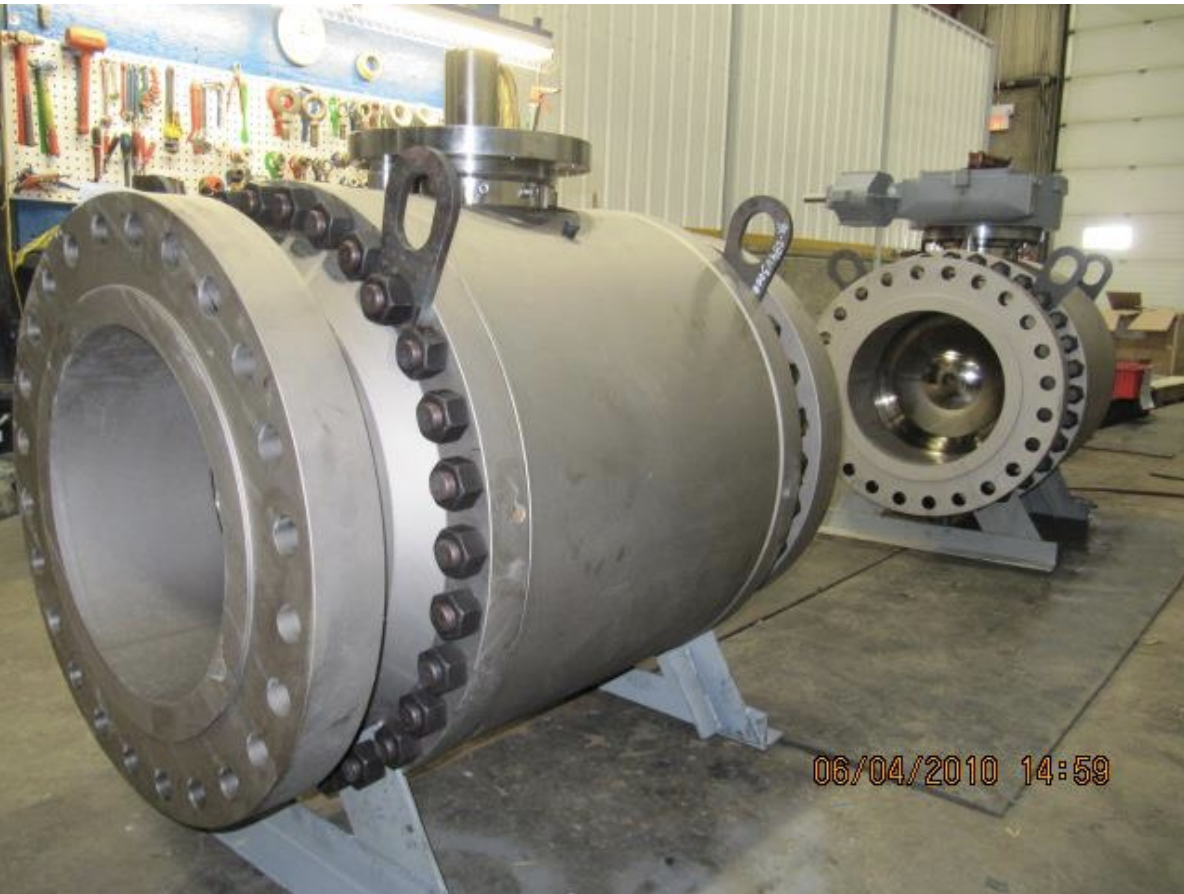
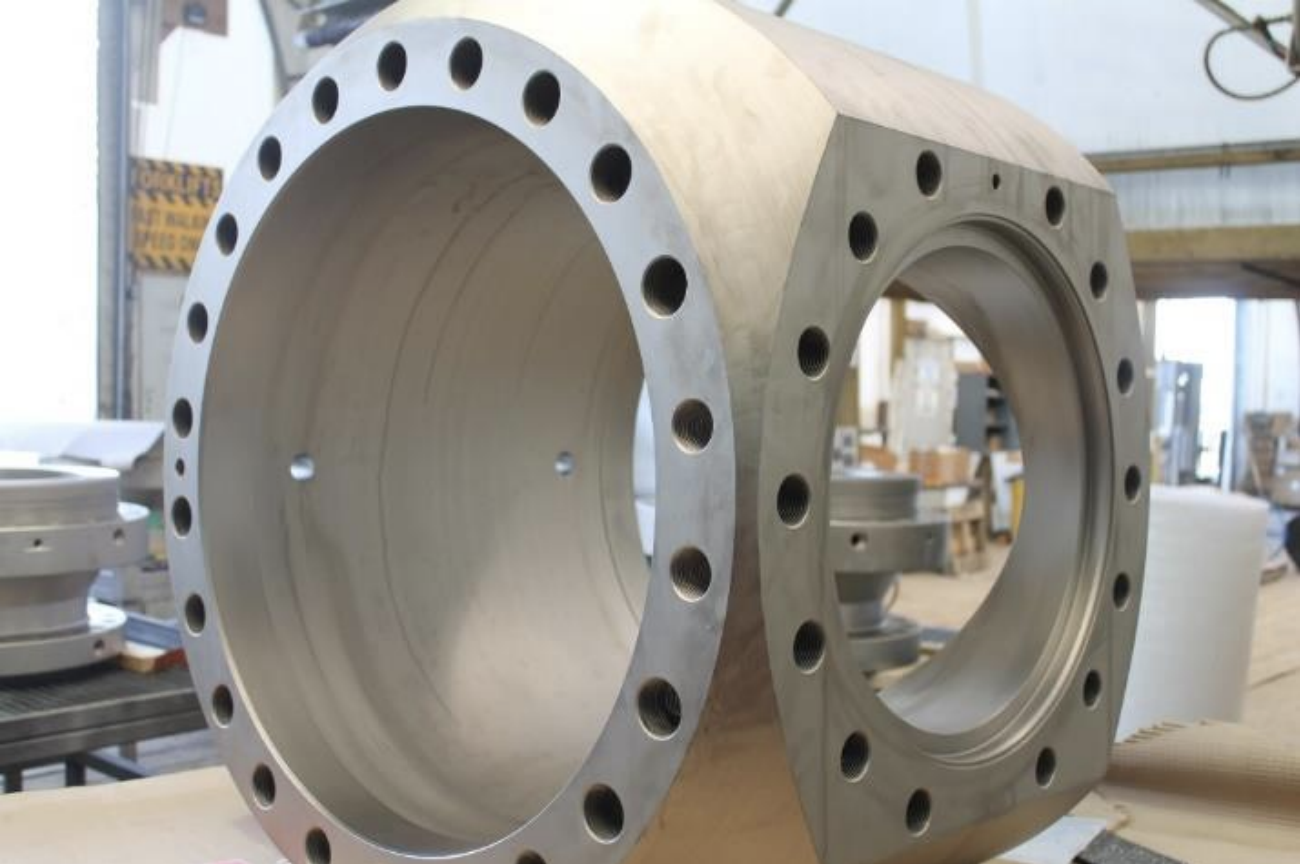
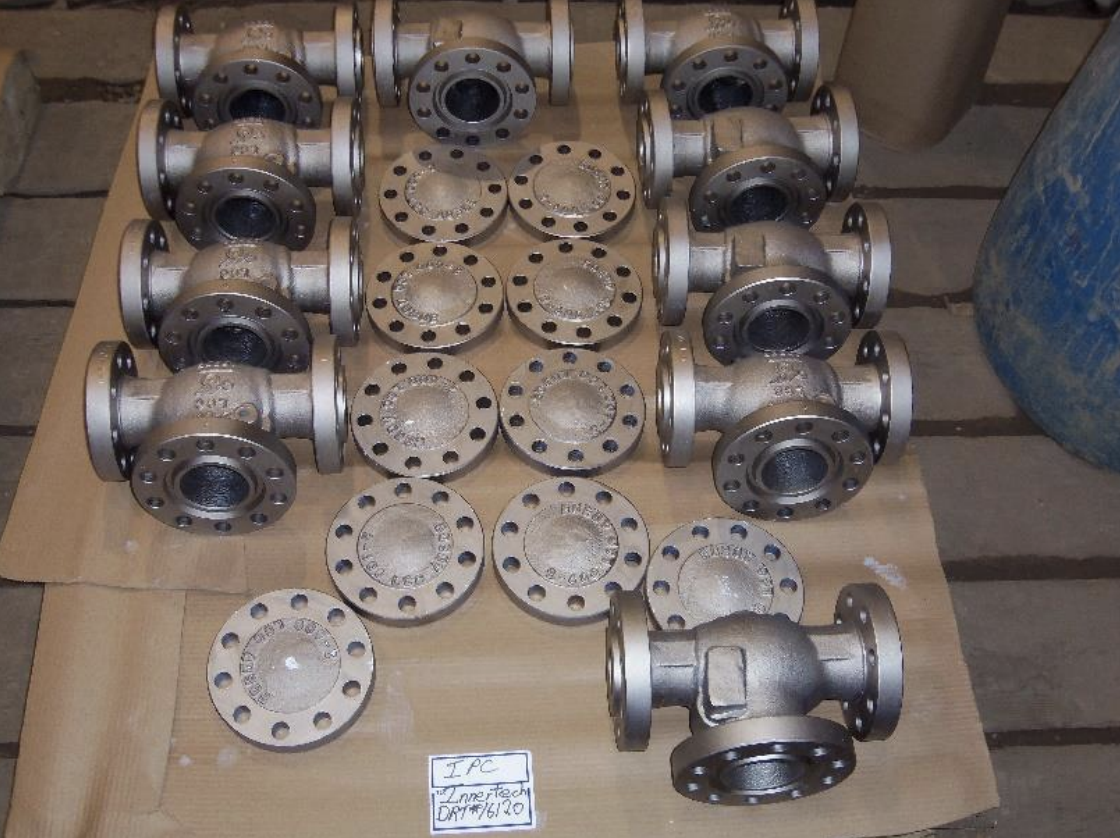
Valves EN-Plated With IPC Series 3000
Interested in IPC Series 3000 For Your Next Project?
IPC 3000 forms an impermeable barrier between the base metal and the outside elements in order to enhance your project capabilities and provide the best results for your equipment. That means eliminating project delays because of damaged equipment and improving profitability in the long term.
To discuss if IPC 3000 is the right for your next project, give us a call toll-free at +1 800-856-4959 or reach out to one of our engineers via email.
